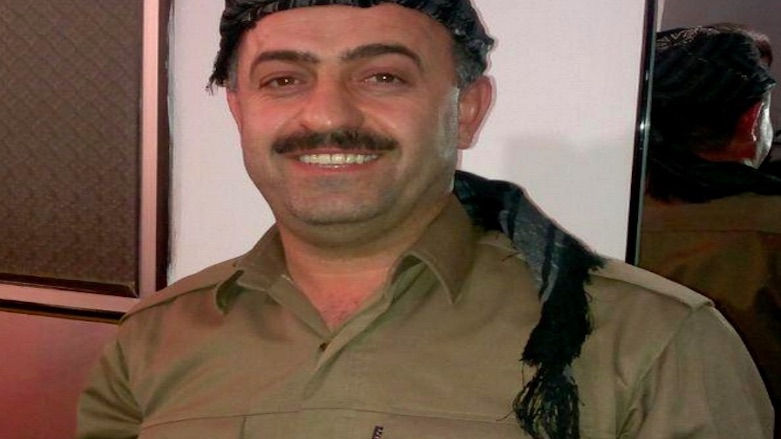Amnesty says Iranian Kurdish prisoner at risk of execution

ERBIL (Kurdistan 24) – Iranian Kurdish prisoner Heidar Ghorbani, 47, is at risk of execution for alleged “armed rebellion against the [Iranian] state,” despite serious fair trial violations, human rights group Amnesty International said on Tuesday.
According to Amnesty International, Ghorbani’s trial actually confirmed that he was never armed.
“His conviction is based on torture-tainted ‘confessions,’ obtained while he was forcibly disappeared,” the human rights organization said in a statement. “The authorities must quash his sentence and grant him a fair retrial,” it demanded.
Iranian Kurdish prisoner #HeidarGhorbani is at risk of execution after an unfair trial in which torture-tainted "confessions" were used as evidence to convict him. @khamenei_ir must quash his death sentence and ensure that he is granted a fair retrial. https://t.co/fh10lK0q3e pic.twitter.com/zinewONE1A
— Amnesty Iran (@AmnestyIran) September 22, 2020
Amnesty called on its supporters to write an appeal to the head of the Iranian government’s Judiciary, Ebrahim Raisi, in Switzerland, urging him “to quash the conviction and death sentence of Ghorbani and order a fair retrial without recourse to the death penalty.”
In a video spread on social media, Ghorbani’s wife appeals to human rights organizations and activists to save her husband.
Heydar Ghorbani’s wife , a kurdish political prisoner from eastern Kurdistan who is in danger of getting executed by the Iranian government is asking all Human rights activists and organisations to save her husband and help her family .
— Kurdish Women Podcast (@KurdishWpodcast) September 19, 2020
Be their voice #SaveHeydarGhorbani https://t.co/LKQSCvK3gm
According to the Iranian constitution, anyone who raises arms against the state must be sentenced to death.
In its statement, Amnesty International pointed to a document on Feb. 1, 2017, written by the investigator of Ghorbani’s case, that said there is insufficient evidence to charge Ghorbani with “armed rebellion against the state.”
On Sept. 12, 2020, Ghorbani’s lawyers appealed to the head of Iran’s Judiciary to order a review of the case.
Ghorbani and his brother-in-law, identified as Mahmoud Sadeghi, from the village of Bazvash in Kamyaran, were arrested by the intelligence service in October 2016 and are currently being held in Sanandaj Central Prison, Kurdish human rights outlet Hengaw reported.
They were accused of cooperating in the murder of several members of the Iranian Revolutionary Guard in 2016, which were killed in a clash with unknown rebels near Kamyaran.
On March 8, 2017, Iranian-state outlet Press TV aired forced “confessions” of Ghorbani without his knowledge.
In addition to his trial before the Revolutionary Court, on Oct. 6, 2019, Ghorbani was also sentenced to 118 years and six months in prison and 200 lashes for allegedly “aiding and abetting murder, attempted kidnapping, [and] assisting the direct perpetrators to escape.”
A relative of the victim’s family told Hengaw that Ghorbani was sentenced to death by a court in Sanandaj in February 2019 on charges of cooperation and membership in the Kurdistan Democratic Party of Iran (KDPI).
According to Amnesty International, there has been an alarming escalation in the use of the death penalty against protesters, dissidents, and members of minority groups—which includes Kurds—in Iran in recent months.
Read More: Iran continues execution of Kurdish prisoners to little international outcry
Amnesty International is concerned that death row prisoners from Iran’s disadvantaged ethnic minorities, namely Kurds, are particularly at risk, given the authorities’ pattern of executing prisoners from these groups when concerned about the eruption of popular protests.
Editing by Karzan Sulaivany
